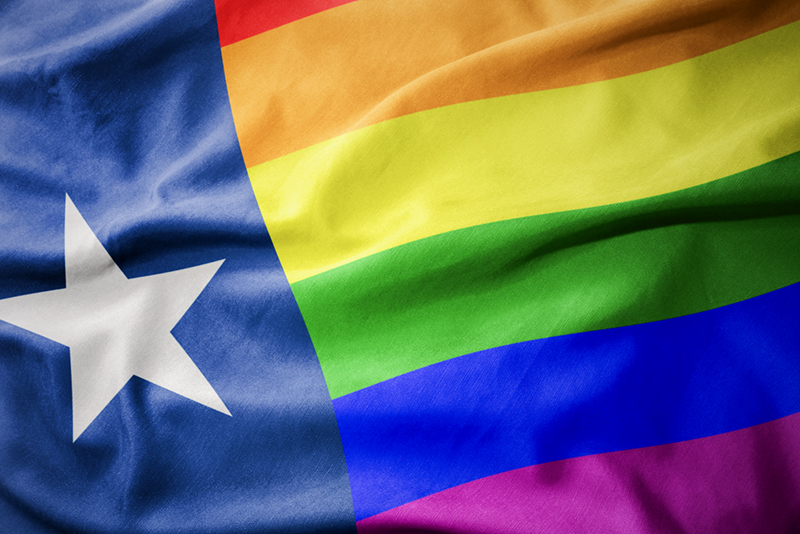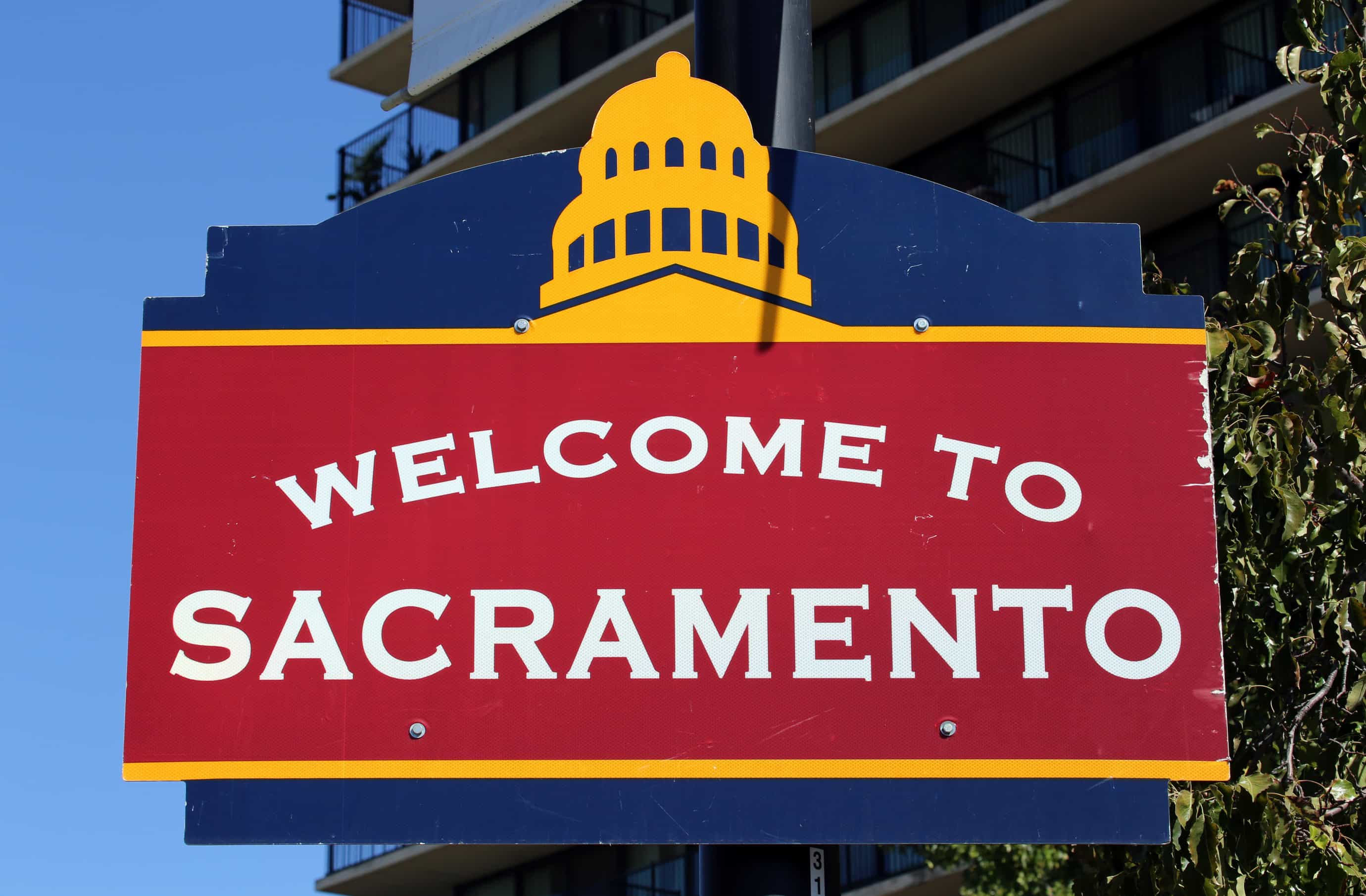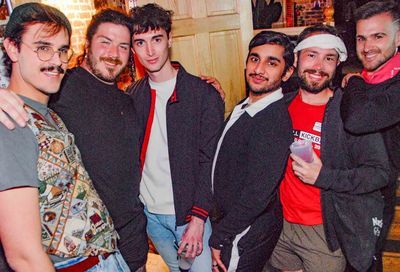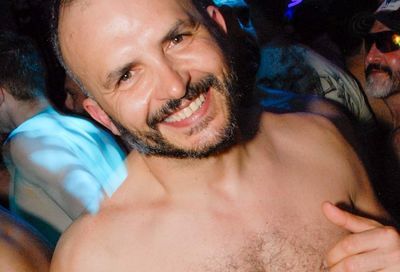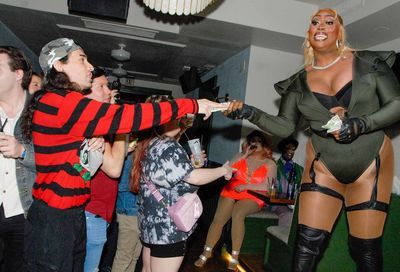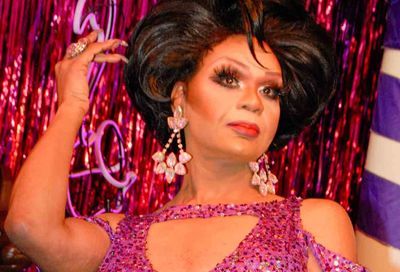Open-House Anger
LGBT community challenges MPD's plans for GLLU, for starters
Despite the lure of an unseasonably temperate evening, about 60 people chose to remain indoors to hear what Assistant Chief Diane Groomes of the Metropolitan Police Department might have to say to the LGBT community — and to present their own concerns to her.
After moderator Christopher Dyer, director of the Mayor’s Office of GLBT Affairs, welcomed the crowd, Groomes offered some details of a training to be given at the end of the month to orient a handful of officers with the MPD special liaison units – the Gay and Lesbian Liaison Unit (GLLU) among them. Longtime local activist Peter Rosenstein’s comments immediately afterward did not set the tone, but they were fairly indicative of what was to follow.
”Clearly the effort hasn’t been put in with the community or the force to put this together,” Rosenstein said, excusing Groomes for taking the heat he said MPD Chief Cathy Lanier had earned. ”We’re getting a program that hasn’t been thought through.”
The training, as Groomes explained it during this MPD Open House at the Reeves Center, will last four days. The first three days will be dedicated to content applicable to officers who will serve in any of the liaison units (Asian, Latino, Deaf/Hard of Hearing, or the GLLU), with the last day offering specialized training in a particular unit.
Groomes noted that of the 57 officers who had signed up for the training, they represented all the MPD districts and 23 had asked for the GLLU training specifically. The audience, which included Councilmembers Michael Brown (I-At Large) and Phil Mendelson (D-At Large), along with At-Large candidate Clark Ray, deflated those figures, however, with questions about the numbers of officers on the force — 4,050 — meaning .6 percent of the force asked for GLLU training.
Those gathered seemed more bothered, however, that the model for the GLLU — a model that was acclaimed by Harvard University’s Kennedy School of Government in 2005 — that saw a number of officers fully dedicated to the unit, was being transformed into an entity with fewer dedicated officers, though with more officers having GLLU training.
Or, as June Crenshaw of Rainbow Response asked, why was this training not mandatory for the entire police force?
Certainly, that training would seem necessary if Sampson McCormick’s story was any indication. He told the crowd of a night in March when he was walking guests at his house in Anacostia to a nearby bus stop following a party. They were confronted by a group of youths.
”We jacked them boys up and held them until the cops came,” he said to applause. ”And they let them go.”
Sampson also accused the officers in that instance of making homophobic comments about some of his friends and saying they were unfamiliar with the GLLU.
”They said it didn’t exist, and that really bothered me.”
Lindy Garnett of Metro-D.C. PFLAG (Parents, Families and Friends of Lesbians and Gays) was also bothered, primarily by what she was hearing that evening. Where Groomes said the new training is voluntary because, ”We want to make sure we have the right people who want to do it,” Garnett countered that in most occupations, instruction on what needs to be done, rather than willingness, should suffice.
Voicing what seemed obvious by the end of the evening, Garnett concluded, ”If nothing else, you have a huge public relations problem.”
Support Metro Weekly’s Journalism
These are challenging times for news organizations. And yet it’s crucial we stay active and provide vital resources and information to both our local readers and the world. So won’t you please take a moment and consider supporting Metro Weekly with a membership? For as little as $5 a month, you can help ensure Metro Weekly magazine and MetroWeekly.com remain free, viable resources as we provide the best, most diverse, culturally-resonant LGBTQ coverage in both the D.C. region and around the world. Memberships come with exclusive perks and discounts, your own personal digital delivery of each week’s magazine (and an archive), access to our Member's Lounge when it launches this fall, and exclusive members-only items like Metro Weekly Membership Mugs and Tote Bags! Check out all our membership levels here and please join us today!
Open-House Anger
LGBT community challenges MPD's plans for GLLU for starters
Despite the lure of an unseasonably temperate evening, about 60 people chose to remain indoors to hear what Assistant Chief Diane Groomes of the Metropolitan Police Department might have to say to the LGBT community — and to present their own concerns to her.
After moderator Christopher Dyer, director of the Mayor’s Office of GLBT Affairs, welcomed the crowd, Groomes offered some details of a training to be given at the end of the month to orient a handful of officers with the MPD special liaison units – the Gay and Lesbian Liaison Unit (GLLU) among them. Longtime local activist Peter Rosenstein’s comments immediately afterward did not set the tone, but they were fairly indicative of what was to follow.
”Clearly the effort hasn’t been put in with the community or the force to put this together,” Rosenstein said, excusing Groomes for taking the heat he said MPD Chief Cathy Lanier had earned. ”We’re getting a program that hasn’t been thought through.”
The training, as Groomes explained it during this MPD Open House at the Reeves Center, will last four days. The first three days will be dedicated to content applicable to officers who will serve in any of the liaison units (Asian, Latino, Deaf/Hard of Hearing, or the GLLU), with the last day offering specialized training in a particular unit.
While Groomes noted that of the 57 officers who had signed up for the training, they represented all the MPD districts and 23 had asked for the GLLU training specifically. The audience, which included Councilmembers Michael Brown (I-At Large) and Phil Mendelson (D-At Large), along with At-Large candidate Clark Ray, deflated those figures, however, with questions about the numbers of officers on the force — 4,050 — meaning .6 percent of the force asked for GLLU training.
Those gathered seemed more bothered, however, that the model for the GLLU — a model that was acclaimed by Harvard University’s Kennedy School of Government in 2005 — that saw a number of officers fully dedicated to the unit, was being transformed into an entity with fewer dedicated officers, though with more officers having GLLU training.
Or, as June Crenshaw of Rainbow Response asked, why was this training not mandatory for the entire police force?
Certainly, that training would seem necessary if Sampson McCormick’s story was any indication. He told the crowd of a night in March when he was walking guests at his house in Anacostia to a nearby bus stop following a party. They were confronted by a group of youths.
”We jacked them boys up and held them until the cops came,” he said to applause. ”And they let them go.”
Sampson also accused the officers in that instance of making homophobic comments about some of his friends and saying they were unfamiliar with the GLLU.
”They said it didn’t exist, and that really bothered me.”
Lindy Garnett of Metro-D.C. PFLAG (Parents, Families and Friends of Lesbians and Gays) was also bothered, primarily by what she was hearing that evening. Where Groomes said the new training is voluntary because, ”We want to make sure we have the right people who want to do it,” Garnett countered that in most occupations, instruction on what needs to be done, rather than willingness, should suffice.
Voicing what seemed obvious by the end of the evening, Garnett concluded, ”If nothing else, you have a huge public relations problem.”
Support Metro Weekly’s Journalism
These are challenging times for news organizations. And yet it’s crucial we stay active and provide vital resources and information to both our local readers and the world. So won’t you please take a moment and consider supporting Metro Weekly with a membership? For as little as $5 a month, you can help ensure Metro Weekly magazine and MetroWeekly.com remain free, viable resources as we provide the best, most diverse, culturally-resonant LGBTQ coverage in both the D.C. region and around the world. Memberships come with exclusive perks and discounts, your own personal digital delivery of each week’s magazine (and an archive), access to our Member's Lounge when it launches this fall, and exclusive members-only items like Metro Weekly Membership Mugs and Tote Bags! Check out all our membership levels here and please join us today!


